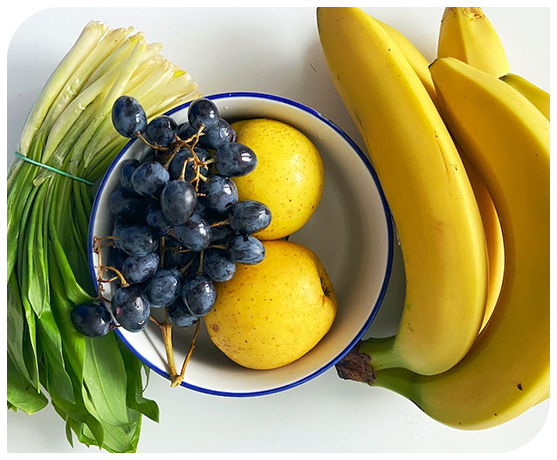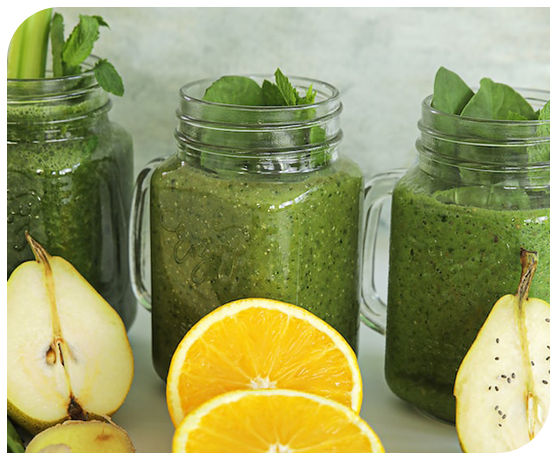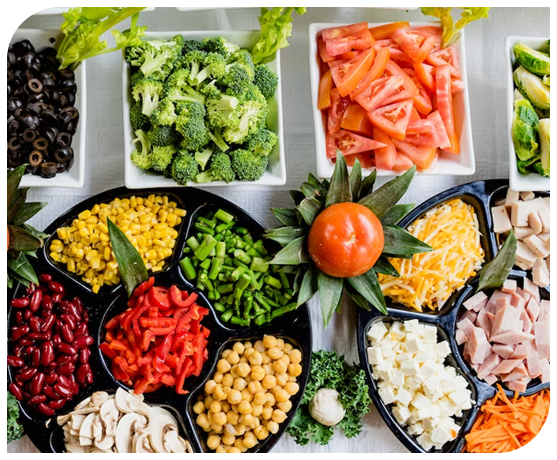6 Tips
for healthy eating:
- First
- Second
- Third
- Fourth
- Fifth
- Sixth

Finds ways to incorporate fruit and vegetables into meals and snacks.
Choose an apple or banana for a snack instead of a fried, sugary or high calorie option.

Consider ways to incorporate
(or hide) vegetables in meals so that the nutrients and health benefits are still there.
For example, put additional fruits or leafy greens into smoothies. Also, consider adding diced carrots and other vegetables into the meat mixture when making meatballs or meatloaf.

Vitamins and minerals
in vegetables and fruit provide health benefits regardless of whether they are fresh, frozen or canned.
If fresh produce is expensive or the storage is not ideal, consider frozen or canned fruits and vegetables. The recommendation is to rinse canned vegetables with water as they may contain added salt to keep them fresh. The vitamin and mineral content in canned fruits and vegetables is still a health benefit.

Eat a rainbow.
Many of the health benefits from fruits and vegetables come from their color.
For example, green foods possess phytochemicals that make them ‘super foods’ because they benefit brain health, immune system health, the heart, strong bones and teeth, in addition to many other health benefits. If there are green foods that you enjoy, then continue to enjoy them. Forcing yourself to choke down Brussel sprouts because you think you should, even though you highly dislike them isn’t ideal. However, eating other green foods that you do enjoy which contain many of the same health benefits is a better option. Eating a variety of colors (like a rainbow) provides the greatest amount of vitamins and minerals that the body needs.

Small changes in the way foods are prepared can have a BIG impact.
Consider baking or grilling foods with an unsaturated fat such as an olive or vegetable oil.
Frying foods adds additional calories and fats that are okay in moderation, however consistently frying foods can put an individual at an increased risk for heart disease, weight gain, or cholesterol challenges.

Have fun with spices!
Consider ways to use spices such as pepper, basil, thyme, oregano, cumin, and many others to replace salt and high sodium options.
The recommendation for adults is 2300 mg of sodium per day (this does not include adults with diabetes or high blood pressure). Most people consume far more sodium than the recommended amount per day. This increased amount can be due to processed foods, sodium in condiments and sauces, as well as the amount of table salt added. Increased amounts of sodium over time can lead to high blood pressure, heart disease, or other chronic disease complications.



